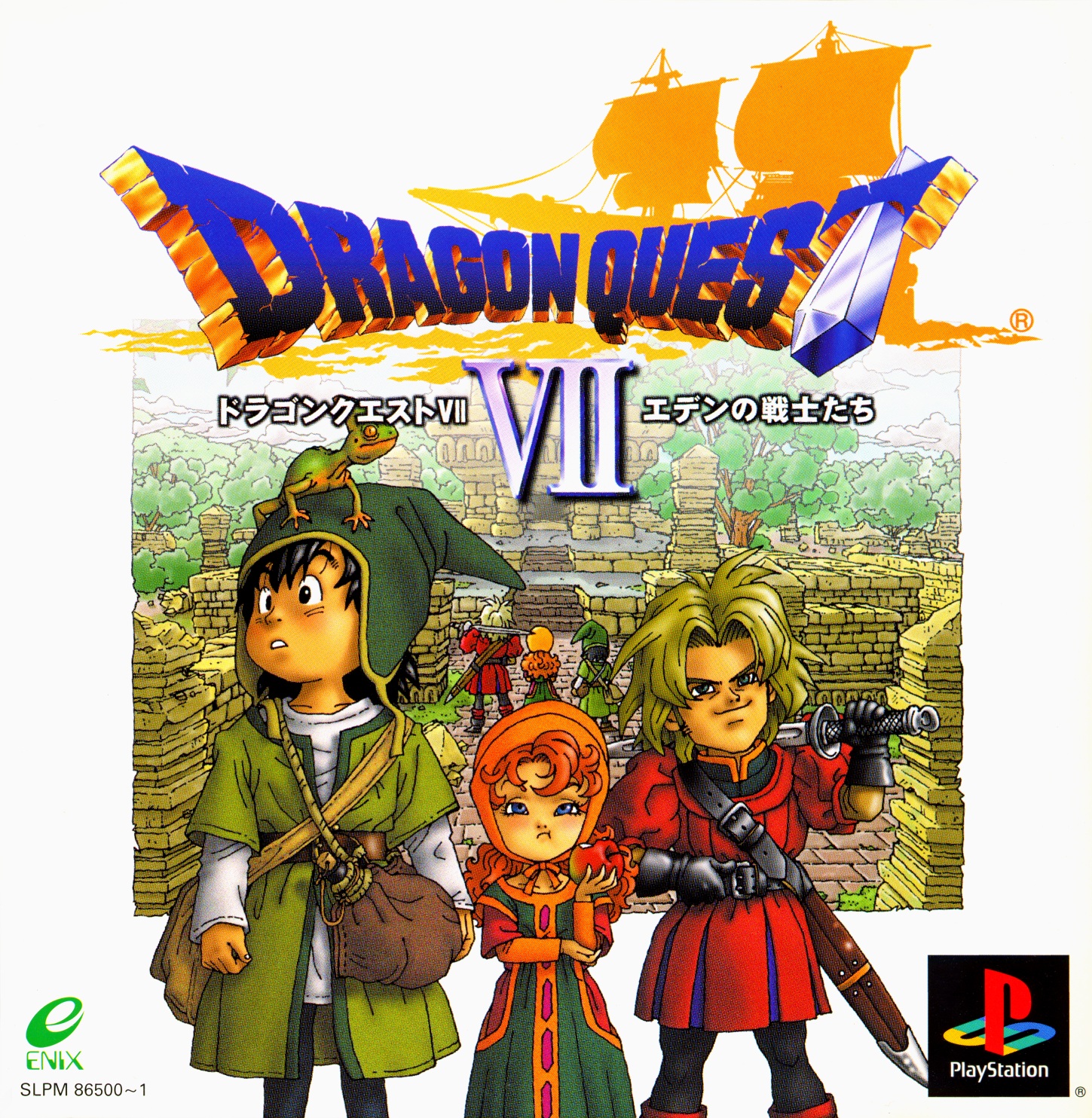

The game also does not tell players whether the enemies currently being engaged are at too low a level to net any job reward, which along with the number of fights necessary to progress will result in a lot of wasted time. Just like DQVI, there is only one place in the world where jobs can be changed, and it is only at Dharma temple where an NPC can tell how many more fights are needed to advance a level in any current line of employment. Setting a job aside is also not recommended, as the game forces makeup battles onto players who go back to it after a break.
#Dragon warrior vii beta full
The simplest of jobs requires 130 battles to master, and full knowledge of at least two basic classes is mandatory to start unlocking the more advanced vocations. The game requires a certain number of battles to be fought while in a class to improve it, and that number is not small. VII brings back the class system found in Dragon Quest VI, but makes it even more aggravating to use.

While the protagonist must be manually controlled, in some situations setting the other characters to AI control is a smart move due to the computer’s clairvoyance when it comes to administering the right move at the right time. Like many turn-based systems the order in which participants take actions is often impossible to predict, with such spectacles as the character who acted last in the previous turn acting first for the subsequent one.

#Dragon warrior vii beta series
Random turn-based brawls are the norm, with the usual series mechanic of having enemies grouped into a number of bands, the individual members of which the player cannot target. That Crusader-style armor is popular with every soldier in the game, despite the confusion it must cause in a fight.Ĭombat in the seventh Dragon Quest is remarkably like that in its six predecessors, save that this one takes certain annoying aspects of the series and amplifies them. Expanding upon it was easy, since the characters here often have nothing to say even when their circumstances would seem to produce exclamations of some kind, and when they do have things to say the results are rarely interesting. VII also introduces the idea of party chat, something that would be expanded upon in the remakes of earlier games for the DS. Why most of the world’s land mass was sealed in the past is unfortunately never divulged, and the conclusion is remarkably limp after all that led up to it. The overarching plot that eventually arises has potential on its own, involving a Demon Lord that battled God over the fate of the world. While writing a story in which the protagonists are the only ones who recognize the changes to the world around them is a difficult prospect using Dragon Quest methods, it still fails to make sense. The people of the new lands say they’ve been there consistently, yet the inhabitants of already-existing areas talk as if these places suddenly popped up where nothing had been prior. The many small stories told by visiting the various lands display varied levels of writing aptitude, but one thing all of them have in common is a critical contradiction with regard to the passage of time. Journeying back to the past to solve the problems of many other people will eventually cause the world’s known land mass to fill out the map. This place’s sole inhabited zone is full of males wrecking their surroundings in the hope of getting back their womenfolk from a nasty monster, and solving this issue puts the party back into the present with the island from the past newly appeared on the horizon. The unnamed hero and his two friends get involved with an exploration of the ancient ruins on the island, and after much poking around the group is whisked onto a different island in the past. Players outside Japan were first given the chance to play Dragon Warrior VII on Halloween in 2001, a wholly appropriate date once the game’s many frightening mechanics started making themselves known.ĭQVII takes place on a peaceful island with little of consequence occurring, just fishing trips and idle banter. In the tradition of its predecessors, Dragon Quest VII has now been given a Nintendo handheld remake, but North Americans wanting to play it in English are still stuck with the original PS1 incarnation, the last in the series to be released before Enix could copyright Dragon Quest for naming purposes outside Japan. Regions outside Japan had to wait more than a decade to get Dragon Quest V and VI on the DS, but the seventh entry in the series made its way across the Pacific much more quickly.


 0 kommentar(er)
0 kommentar(er)
